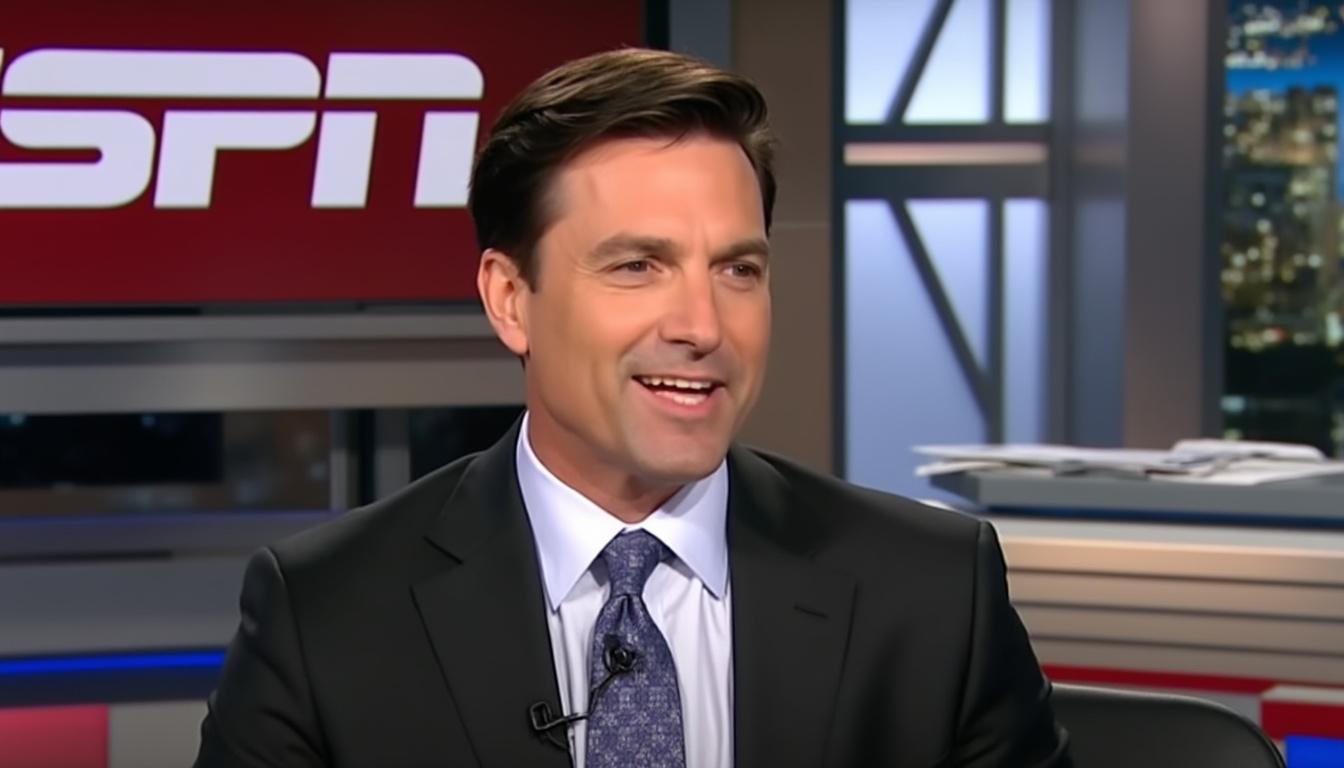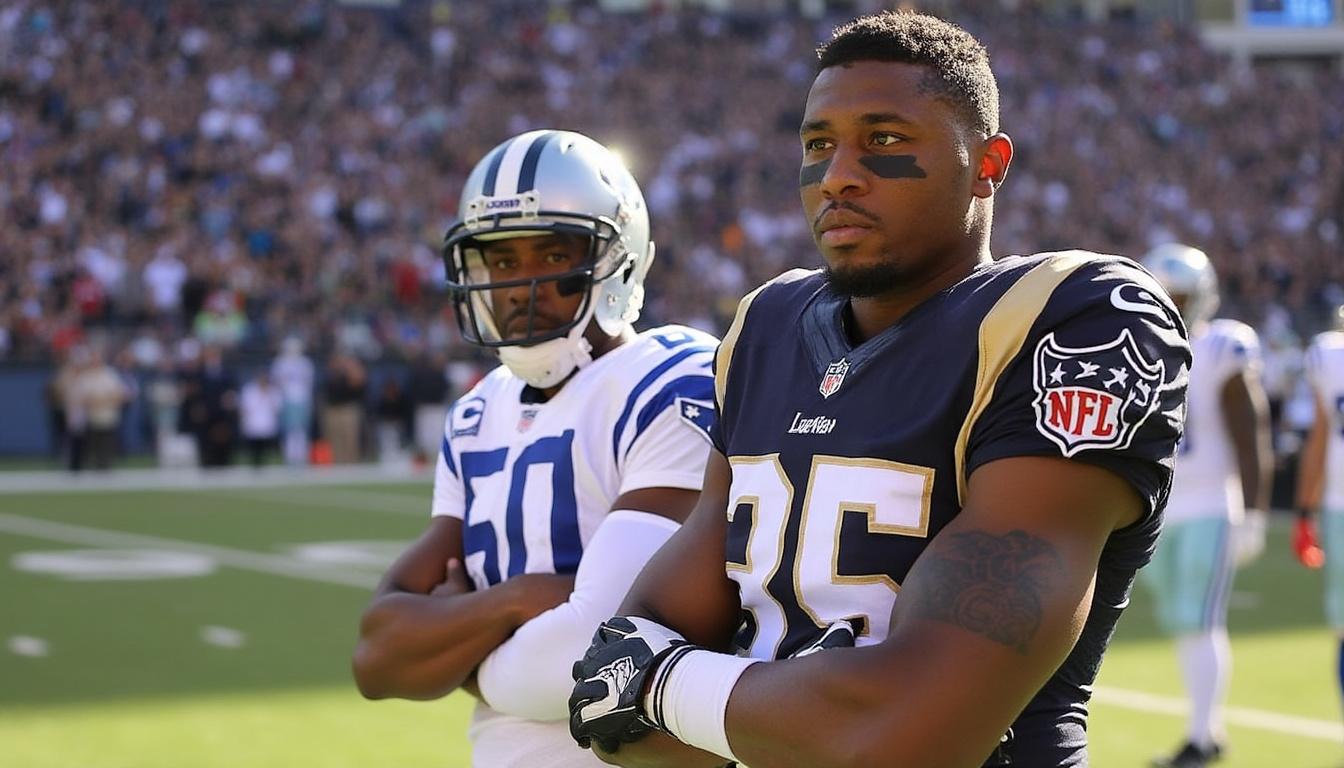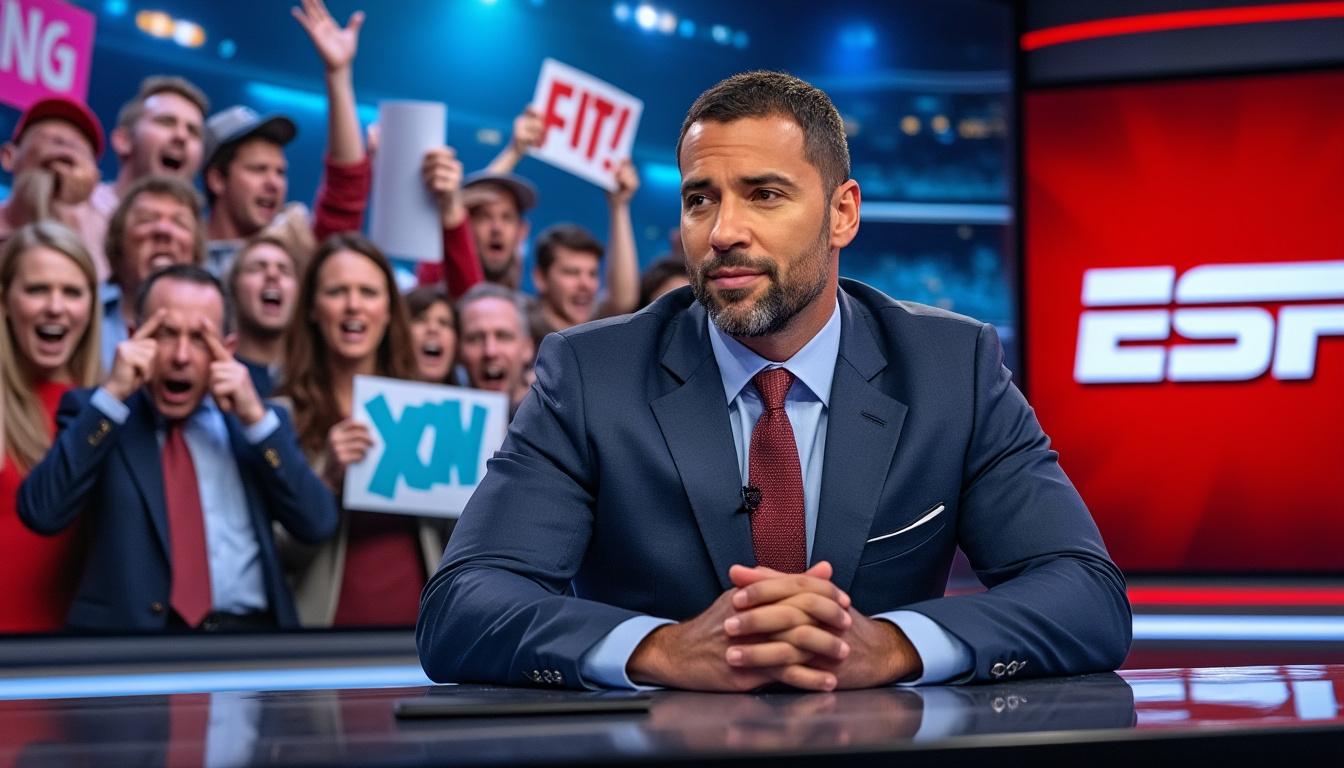The ongoing conversation surrounding Ryan Clark’s position at ESPN has captivated fans of the NFL and sports media alike. With a career that transitioned from the field to the broadcasting studio, Clark’s analytical insights and dynamic presence have made him a staple of ESPN’s programming. Yet, recent controversies and escalating public sentiment have led many to question his future with the network. Despite those calls for his removal, there’s a deeper story to uncover about why Ryan Clark remains with ESPN and how his journey reflects the complexities of sports commentary in the contemporary landscape.
Understanding Ryan Clark’s Journey at ESPN
Ryan Clark joined ESPN in 2015 after a successful NFL career, where he played 13 seasons and secured a Super Bowl championship with the Pittsburgh Steelers. His ability to articulate complex football strategies and player dynamics quickly earned him recognition as an analyst on platforms such as SportsCenter and NFL Live. Clark’s background as a player provides him with unique insights that resonate with audiences, transitioning him from a beloved athlete to a respected voice in sports commentary.

Since joining ESPN, Clark has been involved in various segments that embrace both analysis and discussion, often making bold statements that can stimulate conversation among fans. His approach combines emotional intelligence with an understanding of the game’s intricate details, allowing him to connect with viewers deeply. This connection has been pivotal, especially in a media environment that increasingly values authenticity and engaging narratives.
- 2015: Ryan Clark becomes an ESPN analyst.
- 2016: First appearances on SportsCenter during NFL season.
- 2022: Wins an Emmy for Outstanding Personality/Studio Analyst.
- 2025: Continues to be a prominent voice, amidst speculation of departure.
However, the landscape of sports commentary is not without its challenges. Critics argue that Clark’s sometimes controversial opinions can overshadow his analytical capabilities. Over time, his insights have sparked debates surrounding race and representation in sports. This has raised questions about how personal views can affect one’s standing within a major network like ESPN.
| Year | Event | Impact on Career |
|---|---|---|
| 2015 | Joined ESPN | Brought authentic player perspectives to media |
| 2022 | Won Emmy Award | Recognized for excellence in sports commentary |
| 2025 | Calls for Departure Arise | Challenges highlight the complexity of sports media |
Clark’s position remains a powerful example of how athletes can transition to successful media careers. The ongoing dialogue surrounding his place at ESPN not only reflects individual opinions but also broader societal themes within the realm of sports and race. As debates continue, ESPN must navigate maintaining its programming engage while balancing public sentiment and talent management.
The Controversies Surrounding Ryan Clark
While Ryan Clark has built a reputation as a well-respected analyst, his career has recently been colored by controversy. Central to these issues is the high-profile feud with fellow ex-NFL player Robert Griffin III (RG3). What began as a difference of opinion regarding the dynamics between WNBA athletes Caitlin Clark and Angel Reese soon escalated into a public exchange that polarized opinions among fans. Through his input, Clark aimed to discuss the broader implications of race and identity in sports, which resonated deeply with some viewers but alienated others.

During the heated exchanges, Clark challenged RG3’s comments by highlighting the complexities of race and the importance of authentic representation within discussions about athlete behavior and perceptions. He critiqued RG3’s ability to understand the experiences of Black women in sport, given RG3’s personal familial dynamics. These comments ignited a wave of mixed reactions, with some lauding Clark for his bold stance and others accusing him of “race baiting” and detracting from the original athletic discourse.
- Criticism of Griffin’s Comments: Clark articulated that RG3’s views on race came from a position of privilege.
- Response to the Allegations: Defended himself against accusations of insensitivity.
- Fan Reactions: Diverse views on whether his comments were justified or crossing a line.
Such controversies put ESPN in a precarious position, having to consider the implications of Clark’s comments on public perception. Additionally, the network is often scrutinized for its management of analysts and their behavior, especially in situations involving sensitive topics. Prominent figures like Stephen A. Smith defended Clark publicly against calls for his dismissal, emphasizing the importance of open dialogues in sports media. As Smith stated, “I don’t want to hear sh*t about Ryan Clark being fired,” recognizing the necessity of diverse opinions on air.
| Incident | Date | Effect on Reputation |
|---|---|---|
| Feud with RG3 | May 2025 | Increased visibility and controversy |
| Comments on Race | June 2025 | Polarized public opinion |
| Support from Stephen A. Smith | Ongoing | Shielded against potential backlash |
The implications of these public disputes extend beyond just Clark’s career. They highlight the pressures that come with being a media figure in a racially charged environment where athletes are expected to be more than just players. They must also navigate the intricate landscape of cultural representation and identity.
The Public’s Mixed Reactions to Ryan Clark
In the backdrop of Ryan Clark’s ongoing career at ESPN lies a complicated relationship with fans who have varying opinions about his remarks. While some viewers recognize him as a knowledgeable and articulate analyst, others demand his removal from the network. This dichotomy signifies the essential challenges that sports figures face when addressing sensitive social issues.

On social media platforms such as X (formerly Twitter), users have engaged in lively debates regarding Clark’s qualifications as an analyst versus his role in sparking controversy. Responses have been polarized; for instance, a segment of fans have asserted he is among the best analysts at ESPN, particularly when discussing race relations in sports. They argue that his insights stem from personal experience and bring validity to his arguments.
- Supportive Voices: Many praise Clark for being a knowledgeable voice on race.
- Calls for Dismissal: Conversely, others argue his remarks detract from sports discourse.
- Overall Sentiment: Fans exhibit a spectrum of opinions; the divide is notable.
Even further complicating this is the nature of how ESPN operates, particularly among its talent. Analysts are often expected to foster engaging discourse while maintaining a professional demeanor. In instances where conversations delve into sensitive territory, the line between analysis and controversy becomes blurred. Fans continue to grapple with which perspective they align with and what that means for the future of their favorite commentators.
| Fan Sentiment | Percentage | Response Type |
|---|---|---|
| Support for Clark | 65% | View him as knowledgeable |
| Calls for His Firing | 30% | Perceive him as controversial |
| Neutral or Indifferent | 5% | Disengaged from this debate |
Considering these dynamics, it becomes evident that the future of analysts like Ryan Clark is contingent not only on what they say but also how they are perceived by an audience that increasingly demands transparency and authenticity from their media personalities.
How ESPN Is Navigating the Challenges
As the discussions surrounding Ryan Clark’s potential exit from ESPN unfold, the network faces a pivotal moment in how it conducts its media. Given the modern climate of sports commentary, which emphasizes not just analysis but also social justice, ESPN must strike a balance between upholding its commitment to providing diverse perspectives while managing talent that may evoke mixed reactions. These challenges serve as an insight into how traditional sports networks adapt in an environment where social issues are no longer sidelined.
ESPN has developed internal policies aimed at fostering a climate of respect among its journalists and analysts. Such frameworks promote the understanding that while debate is essential to sports, respect must always come first. The network aims to make its platforms open for discussion but recognizes that certain conversations can evoke strong emotions. Navigating these waters requires not only tact but also an active commitment to diversity and inclusion in its hiring practices and program development.
- Internal Workshops: Facilitate discussions on handling controversies.
- Hiring Diverse Voices: Ensure representation across all sports conversations.
- Crisis Management Plans: Equip teams with strategies for handling backlash.
This strategic approach highlights how crucial it is for ESPN to not merely react to incidents but to proactively engage with its talent and audience. Throughout this ongoing situation, Ryan Clark remains a significant figure in their strategy, as the network recognizes the critical balance he brings: a former player whose background can ignite vital discussions that resonate beyond just sports.
| ESPN Strategy | Objective | Expected Outcome |
|---|---|---|
| Implement Workshops | Encourage respectful dialogue | Reduce inflammatory remarks |
| Cultivate Diverse Talent | Broaden perspectives in commentary | Create rich content |
| Strategic Crisis Plans | Prepare for backlash | Maintain integrity and listen to audiences |
In balancing these demands, ESPN ensures it is positioned as a leader that values not only sports excellence but also the broader societal implications of the games it covers.


